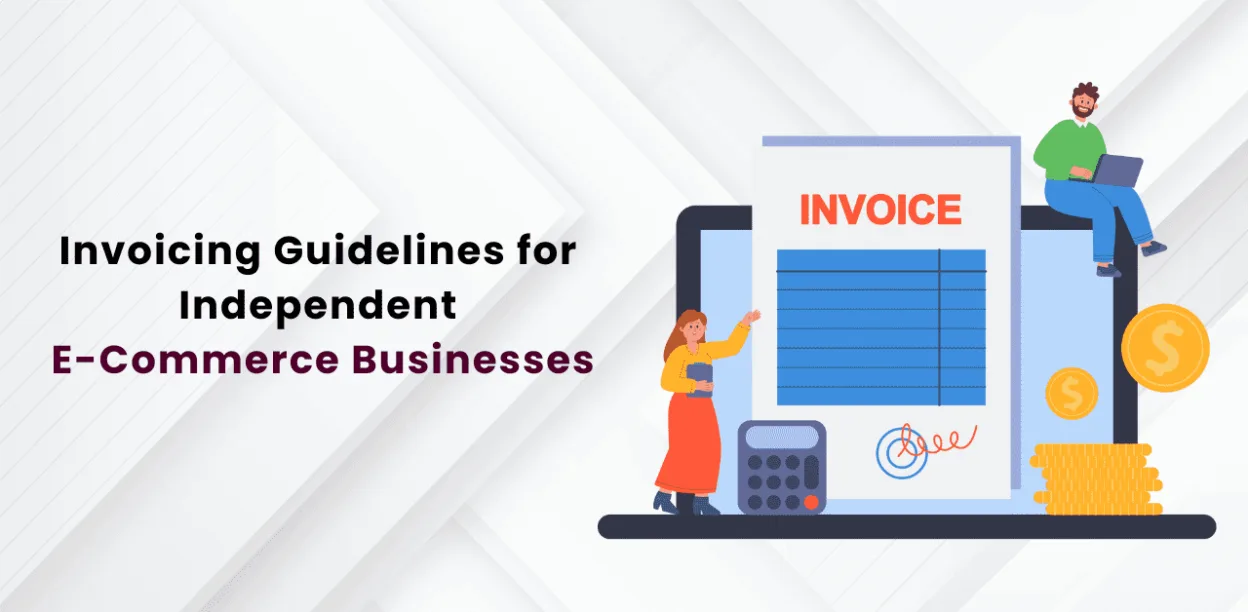In e-commerce, it’s important to understand that it’s not just about running an online store. Professionalism, trust, and legally compliant invoices are essential aspects of e-commerce. This guide offers all the necessary information to ensure proper invoicing in the e-commerce industry.
What’s the importance of correct invoicing?
Imagine the seamless operation of your online store suddenly disrupted by the discovery of inaccurate invoices issued to your customers. Such errors have the potential to rapidly erode the hard-earned trust and reputation you have meticulously built.
Furthermore, these infractions can result in significant financial and legal consequences, including tax penalties.
It’s crucial not to underestimate the significance of how to invoice a company as an individual in the realm of e-commerce, as it constitutes the bedrock for establishing trust and legal assurance.
What are the vital components of a legally compliant invoice?
When creating an invoice, it is important to ensure legal compliance. Below are the most essential key points that should be included in every invoice:
- Full names and addresses of the invoice issuer and recipient:
Both parties’ full contact details should be provided to avoid any confusion.
- Tax or sales tax identification number:
A correct identification number for tax purposes must be clearly stated on the invoice.
- Unique invoice number
Each invoice should have a unique number to ensure traceability.
- Invoice date
The date of the invoice issue should be clearly stated.
- Detailed list of goods delivered or services rendered:
It is essential to provide a clear list of items or services that the customer is being invoiced for.
- Indication of the tax rate and the amount of tax to be paid
Different tax rates may apply depending on the product or service, and these should be clearly and transparently shown on the invoice.
Why are consecutive invoice numbers and tax identification numbers important?
In an e-commerce business, the behind-the-scenes structure and organization are just as important as the presentation of the products.
Two crucial elements of this organization are the sequential invoice numbers and the tax identification numbers.
These components are not only essential for internal bookkeeping and accounting but also play a vital role in adhering to legal requirements and providing excellent customer service.
- Consecutive Invoice Numbers: Why Consistency Matters
Each transaction has a unique consecutive invoice number, which is an integral part of establishing a traceable and organized invoice system.
The seamless sequence of these numbers enables clear identification of each invoice, which is crucial for handling queries, refunds, and warranty claims.
From a tax perspective, the invoice number serves as evidence of the completeness of your bookkeeping and is essential during tax audits.
- Tax Identification Numbers: The Essential Link to Tax Authorities
Tax or VAT identification numbers are mandatory on every invoice to ensure tax registration and processing. These numbers establish a direct connection between your business and the tax databases, simplifying the processing of advance VAT returns and annual financial statements.
Accurately providing these numbers signifies the transparency and reliability of your company, fostering trust among customers who understand that your business complies with legal requirements.
Advantages of Electronic Invoicing
Digitization has extended beyond just invoicing. Discover the ways in which e-invoices can enhance efficiency, reduce costs, and minimize paper usage. Additionally, e-invoices make archiving and accessing historical data much more convenient.
- Using electronic signatures that comply with the law
In the modern landscape of online business, electronic signatures play a crucial role in guaranteeing the legal validity and genuineness of digital transactions. They facilitate rapid and secure verification of invoice transactions, playing a pivotal role in upholding the trustworthiness and authenticity of digital documents.
- Collecting and processing data automatically
Implementing automation in the invoicing process is essential for optimizing efficiency. By leveraging advanced systems for gathering and analyzing data, organizations can minimize errors, save time, and enhance customer satisfaction. Furthermore, automation streamlines the reporting and examination of financial activities.
- Integrating into current inventory management systems
By incorporating invoicing into your merchandise management system, you can streamline the entire process from receiving an order to receiving payment. This integration enhances the consistency of data, eliminates redundant tasks, and offers a comprehensive understanding of your business operations. Simplifying invoicing in e-commerce has never been more effortless!
Security Aspects to consider while invoicing
Protecting customer and company data is crucial in online retail. Learn practical strategies for safeguarding data and ensuring secure invoicing to maintain the trust of your customers and the integrity of your business.
- Sensitive data encryption
When issuing invoices, it is vital to employ modern encryption technologies to safeguard sensitive customer information, including personal data and transaction details. Encrypting this data is essential in order to prevent data breaches and cyber-attacks.
- Compliance with the General Data Protection Regulation (GDPR)
Compliance with the General Data Protection Regulation (GDPR) is a legal requirement for all e-commerce companies conducting business in the European Union. This involves the adoption of stringent data security protocols, the transparent disclosure of information regarding data handling, and the protection of data subjects’ rights when generating invoices.
Bottom Line
Accurate invoicing is crucial for instilling trust and confidence in customers and for ensuring legal compliance in the realm of e-commerce. This entails providing precise contact information, tax identification numbers, clearly identifiable invoice numbers, exact invoice dates, and a comprehensive breakdown of the goods and services sold, including applicable tax rates.
The use of consecutive invoice numbering is imperative for maintaining traceability, which is indispensable for accounting and tax inspections. Leveraging electronic invoicing not only enhances efficiency but also results in cost savings, while the implementation of robust data protection measures safeguards customer confidentiality.
Additionally, a customer-centric approach in handling returns and issuing credit notes puts the finishing touches on a truly professional invoicing process.





